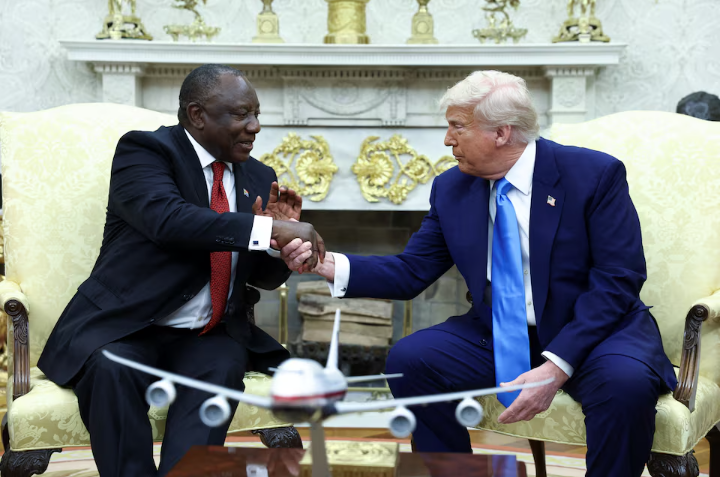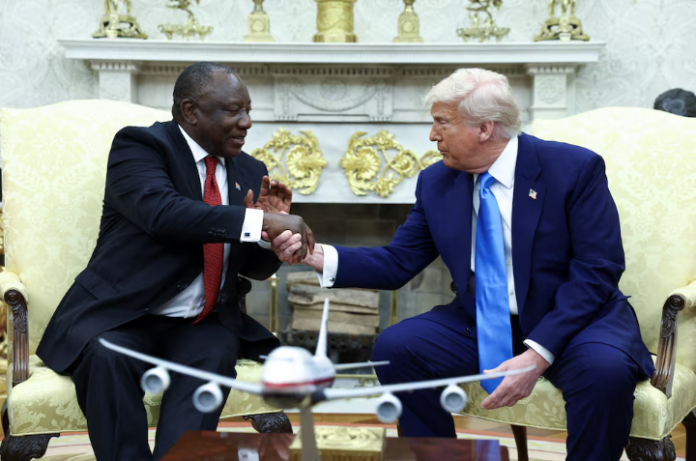During a high-profile meeting at the White House on May 21, 2025, between U.S. President Donald Trump and South African President Cyril Ramaphosa, many South Africans were left shocked and frustrated as the conversation took a disturbing turn. Instead of focusing on diplomacy and bilateral cooperation, Trump dominated the meeting with unfounded claims that white farmers in South Africa are victims of a systematic genocide.
President Ramaphosa had hoped to use the visit as an opportunity to reset strained relations with the U.S., which have worsened since Trump assumed office. The South African leader’s delegation even included renowned white South African golfers to symbolize unity. But Trump was fixated on his belief that white South Africans are being targeted, reportedly showing videos and articles he claimed supported his theory.
South Africans at home and abroad were quick to react.
“This visit was a waste of time,” said Sobelo Motha, a Johannesburg trade unionist. “We all know there’s no white genocide happening in South Africa. Why should we keep explaining ourselves to the U.S.?”
President Ramaphosa remained calm throughout the meeting, avoiding confrontation despite Trump’s barrage of accusations. Some observers praised his composure, noting the contrast with Trump’s aggressive treatment of other leaders like Ukrainian President Volodymyr Zelensky earlier this year.
Still, questions linger about what Ramaphosa’s visit actually achieved.
Foreign Ministry spokesperson Chrispin Phiri defended Ramaphosa, saying, “The president is not combative by nature. He handles issues with a calm, measured tone—which is exactly what we expect of our leaders.”
South Africa is no stranger to crime, but the numbers do not support Trump’s claims. White South Africans represent less than 8% of the population but remain the wealthiest demographic, controlling most of the private land. While the country has one of the highest murder rates globally, the vast majority of victims are Black. Even the TLU-SA, a conservative white farmers’ union, records only 40 white farmer murders per year since 1990—less than 1% of annual murders.

Experts say Trump’s narrative has been shaped by far-right online communities and influencers like Elon Musk, who has supported similar claims. “Right-wing groups and Afrikaner factions have fueled this white victimhood narrative in U.S. conservative circles for years,” said South African writer Pieter du Toit.
Business magnate Johann Rupert, who also attended the White House meeting, challenged Trump directly, saying that crime affects all South Africans, not just the white minority.
Many white South Africans themselves reject the genocide rhetoric. “The violent crime here is real, but it’s affecting everyone,” said Owen van Roen, a commodities trader based in Sandton. “This idea of white genocide is exaggerated and distracts from the bigger issue.”
While Ramaphosa may not have walked away with concrete gains, the encounter shed light on how deep disinformation can influence international diplomacy—and how important it is for South Africa to counter it with facts and dignity.



